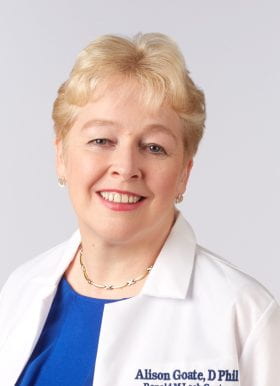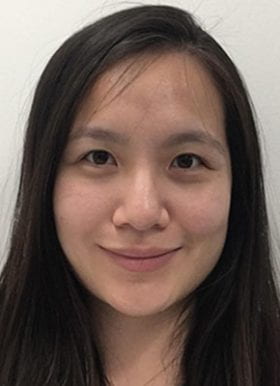
Andrew Singleton, PhD
Andrew received his B.Sc. from the University of Sunderland, UK, and his Ph.D. from the University of Newcastle upon Tyne, UK. His research initially focused on genetic determinants of dementia. After postdoctoral work at the Mayo Clinic, Andrew moved to the National Institute on Aging. He became a senior investigator there in 2007, and Laboratory Chief in 2008. In 2016 he became an NIH Distinguished Investigator. In 2021 Andrew became the Director of the new Center for Alzheimer’s and Related Dementias within the Intramural Research Program of the National Institutes of Health.
Andrew has published more than 600 articles. His group works on the genetic basis of neurological disorders including Parkinson’s disease, Alzheimer’s disease, dystonia, ataxia, dementia with Lewy bodies, and amyotrophic lateral sclerosis. The goal of this research is to identify genetic variability that causes or contributes to disease and to use this knowledge to understand the molecular processes underlying disease.
Andrew serves on several advisory and editorial boards. He has received the Annemarie Opprecht Award for Parkinson’s disease research, the Jay van Andel Award for Outstanding Achievement in Parkinson’s Disease Research, the American Academy of Neurology Movement Disorders Award, the Robert A Pritzker Prize for Leadership in Parkinson’s Disease, and an Honorary Doctorate from the University of Sunderland.

Rosa Rademakers, PhD
Dr. Rademakers received her BSc degree in Biology in 1997 and MSc degree in Biochemistry in 1999 from the University of Antwerp, Belgium. In 2004, she received a PhD degree from the University of Antwerp where she continued her postdoctoral studies before moving to the Mayo Clinic in Jacksonville, Florida in 2005. Since 2007 she was a faculty member at the Neuroscience Department of the Mayo Clinic Jacksonville, Florida, USA, where she became full Professor in 2014. As of 2019, Dr. Rademakers returned to Belgium where she is currently Scientific Director of the VIB-UA Center for Molecular Neurology and full Professor in the Department of Biomedical Sciences at the University of Antwerp.
Her research is focused on the molecular genetics analyses of neurodegenerative diseases, with a special interest in frontotemporal dementia (FTD), amyotrophic lateral sclerosis (ALS) and early-onset Alzheimer’s Disease (AD). Her laboratory has been at the forefront of neurodegenerative disease research since playing a critical role in the discovery of progranulin (GRN) as the first causal gene implicated in FTD. Importantly, in 2011, her laboratory made the discovery that C9ORF72 repeat expansions were the long sought-after cause of ALS and FTD linked to chromosome 9p. Over the last decade her work has expanded into population-based studies to identify FTD genetic risk and modifier factors, including the generation and analyses of whole genome sequences.
Dr. Rademakers has published over 400 peer‐reviewed original articles and reviews. For her work, she has received the Paolo Gontijo Medicine Award and the Sheila Essey Award for ALS Research from the ALS Association in partnership with the American Academy of Neurology. She is also the recipient of the 2016 Potamkin Prize for Research in Pick’s, Alzheimer’s and Related Disorders of the American Academy of Neurology.

Alison Goate, PhD
Alison M. Goate, DPhil, is the Jean C and James W. Crystal Professor of Genomics and Chair of the Department of Genetics and Genomic Sciences at the Icahn School of Medicine at Mount Sinai. She has worked on the genetics of neurodegenerative diseases including Alzheimer’s disease (AD) and Frontotemporal Dementia (FTD) since 1987, and is the founding director of the Ronald M. Loeb Center for Alzheimer’s Disease at Mount Sinai.
Over the last three decades, Dr. Goate has been part of many gene finding teams that have successfully identified disease-causing variants for both AD and FTD. While working at Imperial College in London, she reported the first mutation to cause familial Alzheimer’s disease, and her early studies at Washington University in St. Louis identified a genetic mutation in Colombian families that are now part of the Alzheimer’s Prevention Initiative clinical trial. Her lab was also part of the team that first reported MAPT mutations in FTD.
Dr. Goate is also a leader in the study of late onset AD genetics using integrative genomic approaches to identify novel genetic risk factors. Her work led to the identification of Trem2 as a risk factor for AD and has highlighted the enrichment of AD risk variants in microglial enhancers, regulatory elements in DNA that control gene expression in immune cells of the brain. Dr. Goate is now building upon these insights using genome editing in induced pluripotent stem cells to understand the molecular mechanisms of disease and to develop novel therapeutics.
Dr. Goate has received the Potamkin Award, the Khalid Iqbal Lifetime Achievement Award from the Alzheimer’s Association, and the MetLife Award for her research on AD. She was elected a fellow of the American Association for the Advancement of Science in 2012, and a fellow of the National Academy of Medicine in 2016.

Ellen Tsai, PhD
Ellen is Associate Director of Discovery Genetics at Biogen. Her team leverages large-scale genetic data and biobanks to identify genetic targets of interest and support targets throughout the drug development process. She collaborates closely with academic investigators to build genetic resources, including MetaBrain, a harmonized brain-tissue QTL resource.